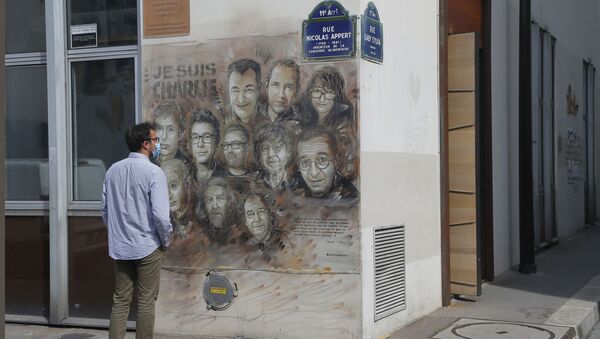“Let us recall here, in solidarity with Charlie Hebdo, who paid for the freedom by the blood of his collaborators, that in France the crime of blasphemy does not exist. Some of us are believers and can naturally be shocked by blasphemy. However, they associate themselves unreservedly with our approach. Because in defending the freedom to blaspheme, it is not blasphemy that we defend but freedom,” the open letter published by Charlie Hebdo read.
It called for French citizens to unite in the face of “the enemies of freedom,” regardless of their differences in opinions.
The magazine reprinted the cartoons on the eve of the trial of 14 suspects accused of helping carry out a series of deadly terrorist attacks in January 2015 in Paris, and once again received multiple death threats. Charlie Hebdo’s head of human resources, Marika Bret, had to move out of her house due to the threats.
The terrorist attack on the satirical magazine on 7 January 2015, resulted in twelve deaths. The terrorists, citing the cartoons as a reason behind the massacre, also killed a police officer the following day and another four people in the Hyper Casher store on 9 January.


